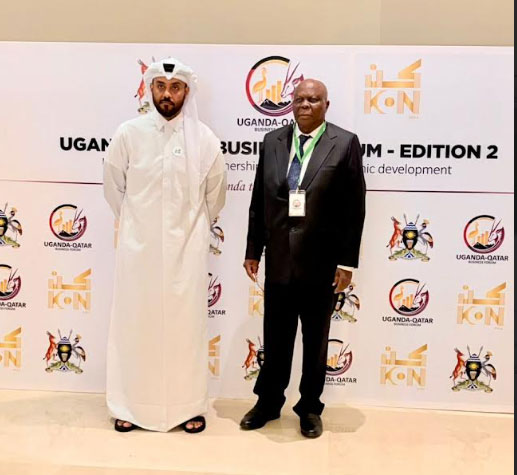Copyright businessbhutan

The first light of a November morning had just touched the hills of Dechencholing when a child entered the world within the Palace grounds. It was November 11, 1955. And the child was one who had been foretold in a prophesy by Terton Drukda Dorji. The newborn was Bhutan’s Crown Prince, Jigme Singye Wangchuck. The young Prince had little time to enjoy the protected joys of childhood. At just sixteen, he lost his father and mentor, His Majesty the Third Druk Gyalpo Jigme Dorji Wangchuck. In that moment of national grief, an immense responsibility descended upon his shoulders – the duty to lead the country ahead. At just 16, he was enthroned as Bhutan’s Fourth Druk Gyalpo. With the crown, His Majesty Jigme Singye Wangchuck inherited not merely a throne, but a destiny. And from that defining moment, a new chapter unfolded in Bhutanese history — guided by a King who had already envisioned the path he wished his beloved nation to walk. Over the next thirty-four years, His Majesty led Bhutan into a remarkable renaissance, an era shaped not by conquest or wealth, but by wisdom, compassion, and a silent yet profound revolution of ideals. His Majesty revealed to the world a timeless truth: the greatness of a nation is not measured by the size of its boundaries, but by the depth of its spirit and the power of its vision. In his Bhutan, smallness became strength; remoteness, a sanctuary for noble values. It was a quiet but powerful declaration — that a small kingdom nestled in the Himalayas could dream differently, live meaningfully, and chart its own sovereign destiny. His Majesty’s vision did not bless Bhutan alone. It lit a path for the world. To a global society increasingly consumed by materialism and blinded by the pursuit of economic gain, His Majesty gifted an extraordinary idea: Gross National Happiness (GNH). More than a development philosophy, GNH was a bold redefinition of what it means to truly prosper — prioritizing human well-being over wealth, harmony over haste, and balance over ambition. It became a moral compass, rooting progress in equity, environmental conservation, cultural preservation, and spiritual fulfillment. GNH became Bhutan’s guiding star, and a beacon of inspiration for the world. At home, under His Majesty’s far-sighted leadership, Bhutan flourished across all dimensions — social, economic, cultural, and spiritual. With unwavering faith in his people, he began sowing the seeds of democracy. He believed his citizens — his beloved children — had matured in wisdom and responsibility and were ready to shape their own future. Decentralization empowered local communities. Power was not taken. Rather, it was entrusted. Then, in an act nearly unprecedented in world history, His Majesty announced on December 17, 2005, that he would abdicate in 2008. Bhutan would transition into a Democratic Constitutional Monarchy, and his son would succeed him as the Fifth Druk Gyalpo. But even more astonishing was what followed. Before the nation could fully comprehend his sacrifice, His Majesty stepped down two years earlier than promised. On December 9, 2006, he abdicated the Golden Throne. It was not a retreat — it was the ultimate act of leadership. A King loved beyond measure surrendered power not because he needed to, but because he believed in the future of his people. The Fourth Druk Gyalpo’s legacy of courage is incomplete without recalling the momentous events of December 2003. For years, armed militants from across the border had taken refuge in Bhutan’s southern jungles, threatening the peace of the kingdom. His Majesty first chose dialogue — he personally visited the camps and appealed for peace. When his pleas were ignored, he made a decision that astonished the world. He went to war — not by sending his people, but by leading them. In uniform, shoulder to shoulder with young soldiers and civilian militias, His Majesty led the military campaign to protect Bhutanese soil and sovereignty. In just three days, the militant camps were dismantled and the kingdom was secured. It was an act of unparalleled bravery, compassion, and duty — the hallmark of a true leader. As Bhutan advanced steadily along the path of transformation, His Majesty the Fourth Druk Gyalpo began laying the foundation for one of the most extraordinary transitions in modern history – the birth of a vibrant democracy. Under His Majesty’s guidance and command, the drafting of Bhutan’s Constitution began. Cornerstone institutions were created to safeguard democracy: the Election Commission of Bhutan (ECB), the Anti-Corruption Commission (ACC), and many others that would ensure transparency, accountability, and justice. By the time the historic transition unfolded in 2008, Bhutan stood fully prepared. Every structure, every law, every safeguard had been put in place. A nation that had known absolute monarchy for a hundred years entered democracy with confidence and grace, guided by a King who chose to empower rather than to reign. On the global stage, His Majesty expanded Bhutan’s horizon far beyond its mountains. Under his reign, Bhutan forged both bilateral and multilateral ties, steadily stepping into the world with dignity and quiet strength. Bhutan went beyond the United Nations and became member of several key international agencies such as the World Health Organization (WHO), the World Food Programme (WFP), and many others. Diplomatic relations flourished as Bhutan formed meaningful partnerships with nations across the globe. Bhutan, once unknown to the world, emerged as a sovereign voice of wisdom. There was this small kingdom with a mighty vision of a visionary King. To hear the story of the Fourth Druk Gyalpo is to witness a saga of extraordinary vision, boundless sacrifice, and unshakeable devotion to his people. He did not simply rule; he nurtured. He did not merely lead; he transformed. Today, as the world admires Bhutan, may we remember that behind this remarkable nation stands an even more extraordinary soul. To him, we owe not only our progress, but our very identity. He is not just a King. He is the architect of our destiny, the heart of our nation, and the spirit of our people. He is Druk Gyalpo Jigme Singye Wangchuck — the Eternal Spirit of Druk Yul. To Him, we bow in profound reverence. Ugyen Tenzin From Business Bhutan



